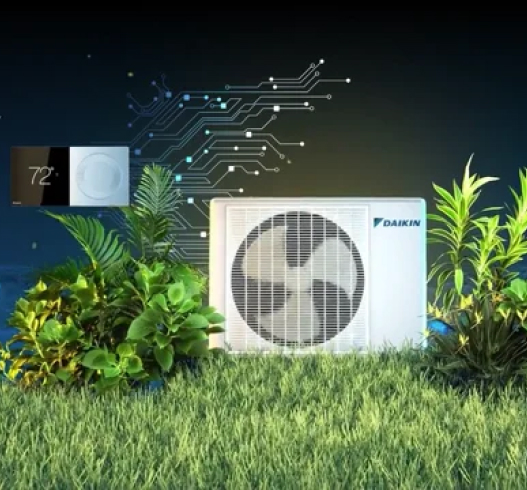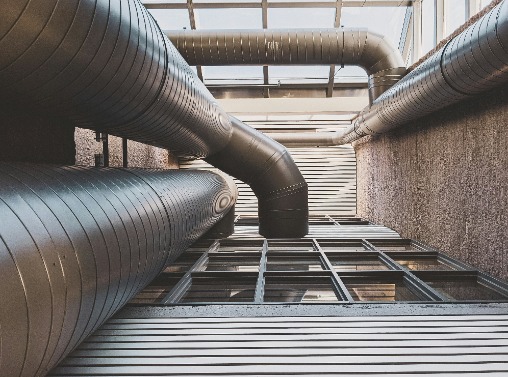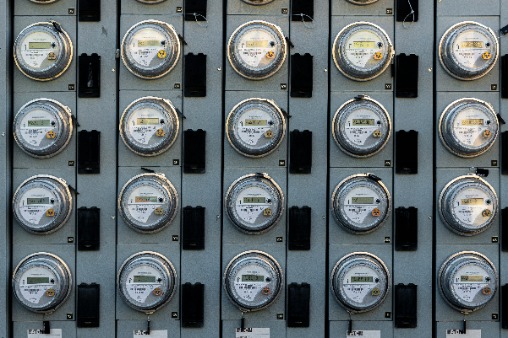Do I repair or replace?

Typically, no one thinks about their heating and cooling system until indoor comfort is compromised. The decision to repair or replace your home heating and cooling system can feel a bit overwhelming. Multiple factors come into play, from energy efficiency and system age to repair costs and overall comfort. This guide is designed to help you make an informed choice and understand your indoor comfort options.
Let's go through some of the common issues and warning signs that you, as a homeowner, may be experiencing:
High Electricity bills
your energy bills increased, but your kilowatt-hour rate remained the same? If your energy bills are steadily rising, it could indicate that your HVAC system is operating less efficiently than when it was initially installed.
Aging systems
Another important indicator is the age of your system. If your system was installed years ago and is experiencing issues, maybe it’s time to start researching a replacement, especially if you're seeing signs of wear, like inconsistent temperatures and noisy operation.
Inconsistent temperature
One uncomfortable sign is not reaching the set temperature. If some rooms are hotter or colder than others, it might be a sign of airflow issues or inadequate insulation, or it may indicate that your system is no longer capable of maintaining a comfortable temperature.
Loud noises and excess dust
Banging, rattling, grinding, or just loud operating noise may be another red flag. These sounds may point to failing components, which can lead to expensive repairs. Poor air quality, including increased dust, may signal that your system struggles to filter and circulate air properly.
Reduced airflow
If you’ve noticed reduced airflow from your vents, it could be a sign that your system’s compressor is failing or possibly issues with the ductwork. Reduced airflow can also increase energy bills as your system works harder to maintain the desired temperature.
Refrigerant leaks
When considering refrigerant leaks, it's crucial to understand the potential impact on your wallet due to the cost of adding refrigerant.
Don't ignore these HVAC warning signs:
High energy bills
If your utility bills are consistently high, even with regular maintenance, your system might be losing efficiency and need replacing.
Frequent repairs
When your system requires frequent repairs, especially for major components, it might be time for replacement.
Aging
HVAC systems that are near the end of their warranty life or already past their warranty life may be candidates for replacement.
Uneven temperatures
If certain rooms in your house are significantly hotter or colder than others, it could indicate issues with your system's airflow.
Loud noises
Unusual sounds like rattling, grinding, or banging coming from your system can signal a failing component.
Reduced airflow
Noticing that significantly less air is coming from certain vents or ducts, may be a sign of a failing system.
When a repair makes sense.
Not sure whether to repair or replace your HVAC system? Use Daikin's Repair or Replace Calculator to help you make the best decision for your situation.
Not all heating and cooling issues require a full replacement. If your system is relatively new or the problem is minor, then repair may be cost-effective. These issues can often be addressed with the help of your local professional contractor.
It's worth considering repair over replacement if the cost of repairs is significantly lower than replacing the system entirely. Talk to a qualified Daikin Pro contractor to assess the repair needs and get a free estimate in these cases.
The $5,000 rule in the HVAC industry use the $5,000 rule to determine whether to repair or replace. Take the age of your system and multiply it by the estimated repair cost. If the result is more than $5,000—it's may be more cost-effective to replace the unit1.
For example, if your 10-year-old system repair is estimated at $600, the total ($6,000) suggests that replacement might be a good option in the long run. However, if the repair is only $200, repair would likely be more cost-effective.
When it's time to replace.
Replacement decisions often come down to two factors: comfort and cost. Yet, many homeowners don’t realize the benefits of installing a new, modern heating and cooling system. Over time, the cost of replacing an inefficient system may be offset by enhanced efficiency through innovative technology, rebates, and incentives.
Efficiency is cost-effective
to a more efficient system can help reduce energy consumption. Products that earn the ENERGY STAR® prevent greenhouse gas emissions by meeting strict energy efficiency requirements set by the U.S. Environmental Protection Agency2.
*ENERGY STAR® and the ENERGY STAR mark are registered trademarks owned by the U.S. Environmental Protection Agency. ENERGY STAR products are third-party certified by an EPA‐recognized Certification Body. Products that earn the ENERGY STAR prevent greenhouse gas emissions by meeting strict energy efficiency guidelines set by the U.S. Environmental Protection Agency.
Rebates and tax incentives offset costs
a homeowner, you may be eligible for local utility, state, or national rebates and tax credits when upgrading to certain high-efficiency HVAC equipment. If you make a qualified purchase, programs like the federal Energy Efficiency Home Improvement Credit may help lower the overall cost of installation. Many high-efficiency heating and cooling units qualify for federal tax credits, and many states or utility companies offer additional rebates for upgrading to energy-efficient models. Be sure to research the available incentives in your area to maximize savings.*
*This information does not and should not be considered tax advice. All information is for general purposes only. Contact your tax professional to determine the application of credits for your specific tax situation.
Advance your investment with R-32 refrigerant
R-32 refrigerant is globally recognized and has been used since 2012. Daikin systems use R-32 because it has a low global warming potential (GWP).

Explore efficient replacement options.
Daikin offers several efficient systems to meet your indoor comfort and energy-saving needs.
Daikin FIT
Connecting ductwork from your existing ductedThis compact, energy-efficient system for ducted homes uses inverter technology to continuously adjust airflow, ensuring consistent comfort throughout your home. system to the garage.
Benefits
Compact, low-profile design
Inverter technology
Quiet operation
Flexible installation options
Smart control options
Affordable price point
Daikin DZ9VC
Recognized as the Most Efficient of ENERGY STAR® 2023 product that delivers quiet and precise temperature control with inverter technology, providing reliable, efficient comfort.
Benefits
Inverter technology
Quiet operation
Smart control options
Field-selectable boost mode
In this article
Connect on Social Media
 Follow on Facebook
Follow on Facebook
 Follow on YouTube
Follow on YouTube
 Follow on Instagram
Follow on Instagram
 Follow on X
Follow on X
 Follow on TikTok
Follow on TikTok
 Follow on Pinterest
Follow on Pinterest

Looking for help now?
Enter your zip code to search for Daikin Contractors in your area.
Learn More
Learning Center Content
Stay informed about home comfort technology, when to upgrade, energy efficiency, and reducing your energy bills.






























